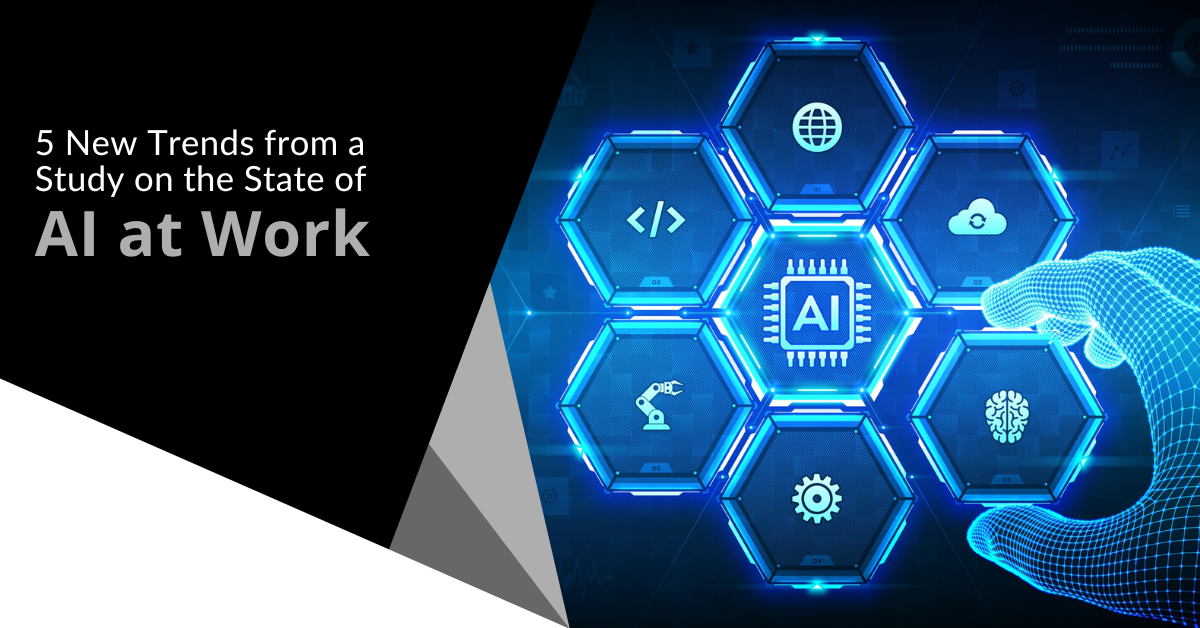
The speed of technological progress is increasing. This is no surprise to those navigating the ChatGPT phenomenon. Artificial intelligence (AI) leads this transformation. Companies are quickly embracing AI solutions, and software providers like Microsoft are even more rapidly integrating AI into their tools.
The objective is to utilize AI for purposes such as:
- Streamlining operations
- Automating tasks
- Reducing errors
- Enhancing business output
The 2024 Work Trend Index, a collaborative report by Microsoft and LinkedIn, offers valuable insights into the current state of AI in the workplace. The study illuminates how AI is revolutionizing work processes and provides innovative ideas and considerations for its application.
As a business IT provider, it is imperative for us to stay informed about these reports. By comprehending the trends, we can assist our clients in navigating these changes and effectively harnessing the power of AI to propel their business forward.
Subsequently, we will examine the primary trends identified in the report and explore their potential impact on your operations.
Employees Want and Expect AI at Work
Is your organization trailing in the adoption of AI technologies? This may pose challenges in attracting and retaining top-tier talent. The study indicates that 75% of knowledge workers currently utilize AI in their professional activities.
Employees recognize that AI facilitates increased efficiency in specific tasks. A significant concern is the slow pace of adoption by some companies. It is essential for organizations to develop a strategic plan. Like any emerging technology, AI can be beneficial, but only when implemented correctly.
The optimal approach is to establish a collaborative partnership with employees. Engage with them to understand how AI can most effectively support their roles. This provides a solid foundation for strategically leveraging AI within the organization.
AI Skills are Becoming More in Demand
Emerging roles, such as prompt engineer, have surfaced in recent years, reflecting the evolving landscape of AI-related positions. Professionals adept at leveraging AI to optimize outcomes are increasingly sought after.
The study indicates that concerns regarding job displacement have not materialized. Instead, organizations are actively pursuing individuals with AI expertise. Fifty-five percent of leaders express apprehension about securing sufficient talent to meet their requirements.
The growing demand for AI proficiency necessitates that employers incorporate AI training to enhance team capabilities. Employees are encouraged to proactively refine their AI and prompt utilization skills. It is advantageous for all parties to effectively harness AI's potential.
The Evolving Role of Employees Using AI
The report further highlights a significant disparity in the utilization of AI among employees. At one end of the spectrum are skeptics, who seldom engage with AI, while at the other are power users, who frequently incorporate AI into their work processes.
These AI "power users" achieve time savings exceeding 30 minutes daily by optimizing their workflows through artificial intelligence.
AI can enhance roles and support tasks in several ways, including:
- AI-driven automation
- Data analysis and reporting
- Customer support enhancement
- Document and policy drafting
Organizations can leverage the expertise of their AI power users. These individuals can facilitate training for their colleagues and assist in developing foundational processes and templates, which other employees can subsequently adopt to improve their work efficiency.
Chaos Can Quickly Ensue Without a Strategy
Companies are under immense pressure to demonstrate a return on investment (ROI) from their technological initiatives. This pressure is particularly pronounced when it comes to integrating AI enhancements into their operations. Many organizations are still grappling with the challenge of effectively quantifying the benefits and financial returns of AI, which can be a complex and nuanced process. Despite these challenges, there is a palpable sense of urgency, as companies are equally concerned about the risks of lagging behind in AI adoption. The fear of missing out on the competitive advantages that AI can offer is driving businesses to act swiftly.
This urgency has led to a situation where employees, eager to leverage AI's potential, are taking matters into their own hands. They are independently using AI tools that have not been officially sanctioned by their organizations. This can lead to scenarios where AI is applied in areas where the company might prefer a more personal, human touch, potentially compromising the quality of customer interactions or decision-making processes. Such unsupervised use of AI underscores the critical need for businesses to establish a comprehensive AI use policy, and to do so with haste.
Without a well-defined policy, the environment can quickly become chaotic, akin to the "Wild West," where anything goes and there is little oversight or control. To navigate this complex landscape, companies can take proactive steps by reaching out to their IT providers for expert guidance. These providers can offer valuable insights and support in crafting a robust AI strategy that aligns with the company's goals and ensures that AI is used effectively and responsibly.
